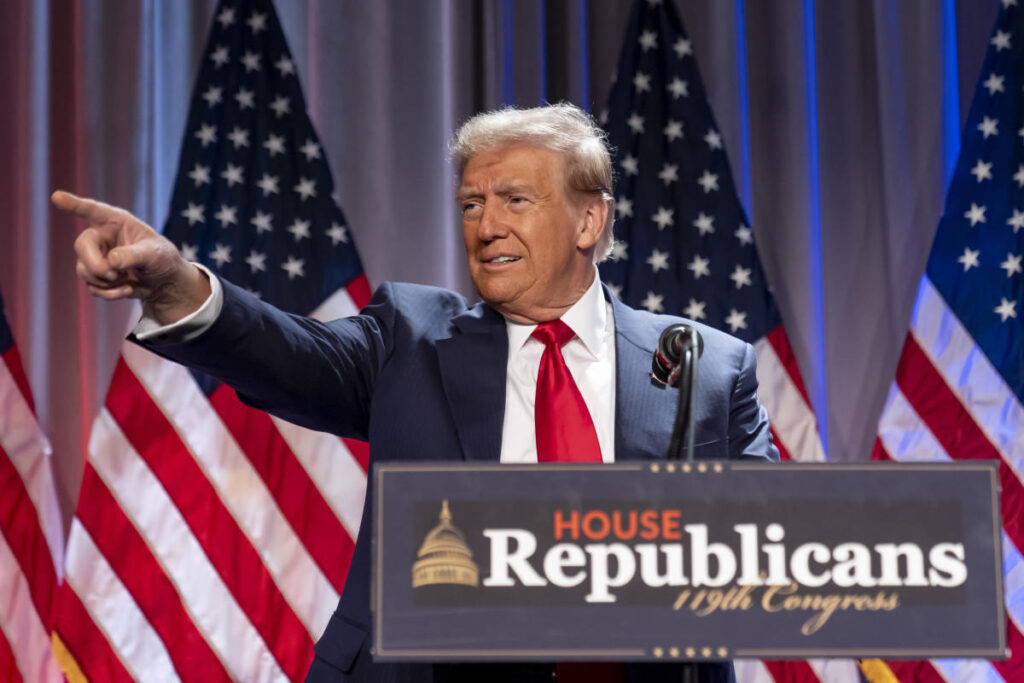[ad_1]
Investors this year have grown increasingly confident the US economy will achieve a “soft landing.”
But the election of Donald Trump as the nation’s next president has complicated the outlook.
And some economists now think it’s likely the US could face another inflation resurgence if Trump follows through with his key campaign promises.
“We are in the soft landing,” Nobel prize-winning economist and Columbia University professor Joseph Stiglitz said at Yahoo Finance’s annual Invest conference on Tuesday. “But that ends Jan. 20.”
Trump and his proposed policies have been viewed as potentially more inflationary due to the president-elect’s campaign promises of high tariffs on imported goods, tax cuts for corporations, and curbs on immigration. Those policies could also pressure an already bloated federal deficit, further complicating the Federal Reserve’s path forward for interest rates.
“The biggest risk is a large across-the-board tariff, which would likely hit growth hard,” Jan Hatzius, chief economist at Goldman Sachs, wrote in a note to clients on Thursday.
Jennifer McKeown, chief global economist at Capital Economics, also acknowledged in a note this week there are “upside risks” to inflation “stemming partly from Trump’s proposed tariff and immigration policies.”
And investors have taken notice.
On Wednesday, the latest Global Fund Manager Survey from Bank of America highlighted increased expectations of a “no landing” scenario, in which the economy continues to grow but inflation pressures persist, leading to a higher-for-longer interest rate policy from the central bank.
Tariffs have been one of the most talked-about promises of Trump’s campaign. The president-elect has pledged to impose blanket tariffs of at least 10% on all trading partners, including a 60% tariff on Chinese imports.
“It will be inflationary,” Stiglitz said. “And then you start thinking of the inflationary spiral. The prices go up. Workers will want more wages. And then you start thinking of what happens if others retaliate [with their own duties.]”
Minneapolis Fed president Neel Kashkari categorized a possible retaliation as a “tit-for-tat” trade war, which would keep inflation elevated over the long term.
“If inflation goes up, [Federal Reserve Chair Jerome Powell] is going to raise interest rates,” Stiglitz said.
“You combine the higher interest rates and the retaliation from other countries, you’re going to get a global slowdown. Then you have the worst of all possible worlds: inflation and stagnation, or slow growth.”
[ad_2]
Source link

